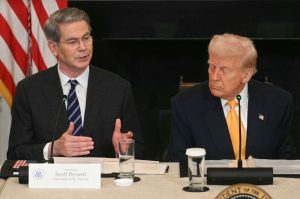The United States aligned with its G7 allies on Friday to reaffirm support for Ukraine’s territorial integrity and warned Russia to accept a ceasefire or face further sanctions. The move followed weeks of tension between U.S. allies and President Donald Trump over his trade, security, and Ukraine-related policies.
The joint statement marked a rare moment of consensus among the G7 members—Britain, Canada, France, Germany, Italy, Japan, and the United States—as well as the European Union. The discussions, held in La Malbaie, Quebec, were clouded by concerns over global trade, security, and Trump’s unpredictable foreign policy.
U.S. Supports Ukraine’s Territorial Integrity
Despite earlier skepticism about U.S. commitment, the final G7 communiqué reaffirmed unwavering support for Ukraine, stressing its sovereignty, independence, and right to exist. Officials noted that Washington’s backing for these statements was unexpected given Trump’s previous ambiguity on Kyiv’s territorial claims.
“We felt really good about the statement, worked hard on it,” said U.S. Secretary of State Marco Rubio. “We’re not going to let our differences stop us from working together on areas of agreement.”
Security Assurances and Further Sanctions
The G7 warned Russia to reciprocate Ukraine’s ceasefire efforts or risk additional sanctions, including oil price caps. The group replaced earlier language referring to “security guarantees” with “security assurances” for Kyiv, emphasizing the need for deterrence against future aggression.
“G7 members called for Russia to reciprocate by agreeing to a ceasefire on equal terms and implementing it fully,” the statement read.
Trade and Diplomatic Tensions Among G7
The meeting also highlighted divisions over Trump’s policies, particularly on trade and China. While Canada pushed for stronger maritime security measures targeting Russia’s shadow shipping network, Washington resisted tougher language that might hinder U.S.-Russia negotiations.
Stronger Stance on China
The G7 took a firm stance on China, stepping up language on Taiwan and omitting past conciliatory references to Beijing’s “One China” policy. This shift is expected to provoke a strong reaction from Chinese authorities.
Middle East and Israel-Palestine Conflict
G7 members struggled to find common ground on the Israeli-Palestinian conflict. The final statement omitted explicit support for a two-state solution, a phrase included in earlier drafts.
Instead, the communiqué underscored the importance of “a negotiated solution that meets the legitimate needs and aspirations of both peoples and advances comprehensive Middle East peace, stability, and prosperity.”
Uncertain Future for G7 Cooperation
While Friday’s statement represented a diplomatic win for G7 unity, officials remain wary of future shifts in U.S. policy under the Trump administration.
“Today, we achieved unity, but with Washington’s unpredictability, we can’t be certain this stance will hold,” one European diplomat cautioned.
With growing uncertainty in global trade and security, the G7 faces ongoing challenges in maintaining a united front against geopolitical threats.





















